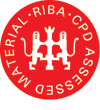When it comes to reducing the risk of falls from height, what responsibility do architects have to site operatives during the design/ construction phase and to those that will use and maintain the building post completion?
The programme is a studio-based interview with architect and CDM-co-ordinator Paul Bussey from Scott Brownrigg. Against the backdrop of the current Working at Height Regulations, Paul sets out the dangers and explains the delicate balance that architects must strike between giving clients what they want and ensuring that those constructing and maintaining the building do not face unreasonable levels of risk while carrying out their work.
Key learning points:
- An overview of the WHRs
- In terms of the risk of falling from height, what are the potential danger areas on site?
- What are MEWPs and BMUs
- Is roped access the least safe option when it comes to maintenance?
- An introduction to The Lofstedt Review and the forthcoming BS 8560
About the contributor
Paul Bussey, Dip.Arch Hons RIBA RMaPs MIFireE, has 35 years experience in architecture. A degree in Architecture from Liverpool University was followed by three years in Zambia. After qualifying back in the UK, Paul spent 19 years with London practice RHWL.
Paul joined Scott Brownrigg in 2005. A registered CDM-C he currently chairs the architectural CDM designers group DIOHAS, with representation on the HSE's CONIAC Working Group evaluating the 2007 CDM Regulations, and other government led partnership groups.
He is also vice-chairman of the London Region and National Representative on the Council of the Association for Project Safety and also chairs a British Standards working group writing a new BS 8560 on Design for Working at Height.
 Disclaimer: NBS TV programmes are the intellectual property of RIBA Enterprises and it shall be a breach of this right to copy, or in any way exploit commercially or show in public any of the programmes without the express permission of RIBA Enterprises.
Disclaimer: NBS TV programmes are the intellectual property of RIBA Enterprises and it shall be a breach of this right to copy, or in any way exploit commercially or show in public any of the programmes without the express permission of RIBA Enterprises.
